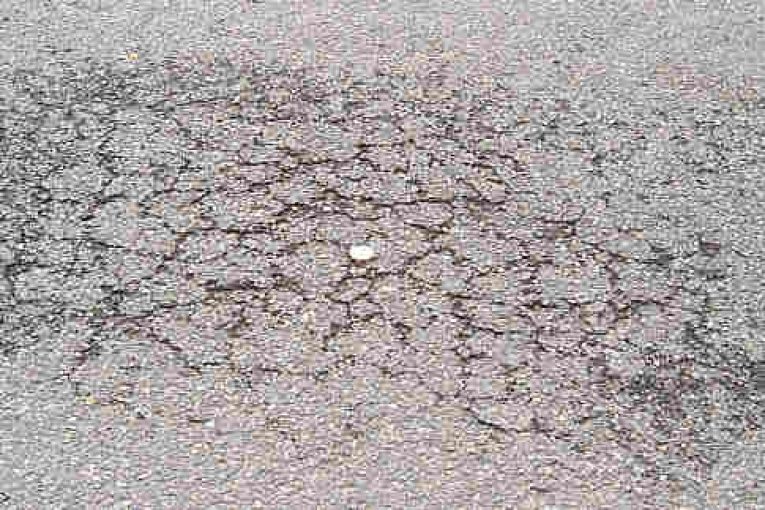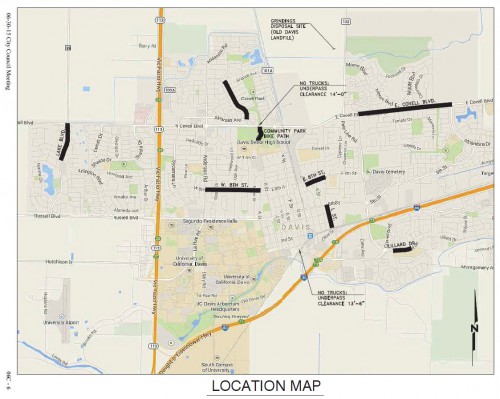

The Davis City Council made the move they had to make on Tuesday night – which was to separate the current tax issue from the issue of building sports parks and swimming pools.
Councilmember Rochelle Swanson made the motion that the city have a Davis sports park complex advisory committee or task force, like the city has done in the past for other major infrastructure. She asked that it be brought back in the first meeting after the summer break.
“There’s a lot of concern about what the subject matter of the vote is,” Councilmember Swanson explained. “My fear is that we’re going to lose a lot of momentum whether it’s support for a tax which is what we need.”
The council was clear on the need to separate the issue of the sports facilities from the tax conversation.
Mayor Pro Tem Robb Davis stated, “I think we have to divorce the conversation about a sports park from the UUT or any type of tax measure that we would eventually have.” He added, “In my opinion we need to look at the existing infrastructure backlogs that we have for roads, key city building, the fleet… and other key infrastructure needs.”
However, despite the diligence of this council, the underlying problem still remains – how do you build in assurances of future use of a tax that goes into the general fund?
The problem was readily apparent on Tuesday night – it wasn’t even a large group of people but you had representatives from at least two swimming organizations, AYSO, Little League, softball, and even tennis. For the most part, those were just the leaders – now imagine a room full of the rank and file.
Mayor Pro Tem Robb Davis made it a point to state he favored a parcel tax over the Utility User Tax (UUT). He said, “In an ideal world, I would prefer to support a parcel tax.” He said that, while he thinks it’s “regressive,” “the accountability that comes with it is important. I don’t see energy for that.”
It is obvious that the support for the UUT is based on the polling done over a year ago, without any sort of real education campaign by the city or city council, that showed a parcel tax at $150 or even $100 having trouble reaching the two-thirds threshold.
However, as Tuesday night shows, there are seeds for doubt. It is easy to separate the questions now – in fact, the sports advocates are better off sitting back, allowing the city to attempt to pass the initial tax and then they can assess the possibilities for a sports park tax and, short of that, they can see if a future council is willing to use some of the potential revenue from the UUT to fund a sports park.
Mayor Pro Tem Robb Davis asked for “a full accounting of the backlogs that exist in this community.” He stated that the only way he would feel comfortable with a UUT is if the city council lays out the goals and objectives he laid out earlier in the evening.
Since the UUT is a general tax, technically, once passed, the tax could be used for anything. Earlier this week we pointed out that the sales tax of 2004 that was supposed to go to shore up parks and staffing, instead went to a massive pay increase for firefighters and other city employees.
The council’s thinking right now is that an accompanying advisory measure would be able to show the community’s preference. But, as we saw last spring, an advisory measure creates its own problems – and is difficult to craft in a way so that it is specific enough to show voter intent but not too specific to violate the laws in place.
The point that was made to the Vanguard, however, is that even a parcel tax which can specify spending has pitfalls. In addition to the two-thirds requirement, the council could simply use the parcel tax to backfill current spending from the general fund and free up the general fund monies to go to a sports park or employee compensation.
While that is a risk, at least with the parcel tax, we would have a very clear spending priority by both the council and the community.
It should also be pointed out that, while the UUT is being proposed because it has a lower voter threshold, statewide, at least, UUTs have a low probability for success. We need to be wary at this point about the prospects of it passing.
Observe that, in 2004, the sales tax passed by a 68-32 percent margin. However, the 2014 sales tax increase passed by a marginal 58-42 margin. That was despite no real organized opposition and the clear need expressed by a $5 million structural deficit.
Are voters, just two years later, willing to pass a tax that will hit their pocket books far deeper than a half-cent sales tax?
There are ways that the council can bind themselves in on the spending. They can make a clear statement as to the intent of the tax. Individually, they and 2016 council candidates can be asked to sign a pledge. The hope would be that as long as a group like the Vanguard were around, at least they could be held to the intent of the tax.
But all of that is mere lip service. There is nothing binding their vote and tying their hands.
The bigger issue may not be how the money is spent but whether the tax can pass at all. A big problem that the city faces here is the lack of community understanding of the depths of the problem.
When the city polled last spring, the vast majority of people thought that the city’s fiscal picture was fair or good. On Tuesday night there seemed a disconnect from those in the sports community who were pounding the podium about the crumbling sports facilities and not seeming to grasp the enormity of costs we face on basic infrastructure.
Moreover, this is not going to fix the problem. We calculated that community needs likely exceed $200 million and yet, over a 20 year period, this tax generates a little over half that. The road conditions are such that if we lack the resources to really get at the problem, the costs continue to mount – which is why the report suggested $400 million and ultimately $600 million as a possibility.
The B-modified plan that council adopted in the spring of 2013, on the contrary, allows the road conditions to downgrade to a PCI (pavement condition index) of 60 or 63 with the focus on main thoroughfares.
As Robb Davis stated at the end of the council discussion, “I have no illusion that we’re going to be able to raise enough money to cover all of the backlogs that we currently have.”
Without a sense of urgency, this problem is not going to be fixed. The community needs to be educated on just how big and how deep this problem goes. And right now, they are not there. That is our failure and it could lead to a failure of revenue efforts.
—David M. Greenwald reporting

Our eye is off the ball and who’s fault is that?
I’ll give you a clue, his initials are Dan Wolk.
The reason citizens agreed to the sales tax increase is because it was billed as a TEMPORARY bridge until well planned innovation parks came online to generate substantial tax revenue. A UUT or parcel tax should be billed the same way – a TEMPORARY bridge until well planned innovation parks come online to generate substantial tax revenue. If citizens truly believed the city plans a long term fiscal strategy of well planned innovation parks, it is my opinion folks would be much more likely to get behind a well crafted UUT.
But a well crafted UUT would mean:
1. Separating “need to have” from “nice to have” capital projects; prioritize capital projects in order of necessity; accompany the list of capital projects with costs of each;
2. Recommit to well planned innovation parks as the city’s long term fiscal strategy;
3. A UUT would be accompanied by an advisory measure laying out exactly what the City Council expects the UUT revenue to be spent on; what utilities will be taxed; what the rate of taxation will be;
4. The UUT would expire after a few years (no more than 5 yrs) for reassessment to determine if the UUT should be renewed.
It is crucial for the city to put out the right messaging and then doing what has been promised in any advisory measure if there is any hope of getting a UUT approved/renewed.
It’s interesting that the polling suggests that people wouldn’t support a parcel tax for this. I’ve got my property tax bill right here. I pay $99.10 each year for a Davis Special Library Tax. Did they conduct a poll to see if people would pay $100 a year for libraries?
I am not happy about a UUT. It pegs a tax on consumption, much of which I don’t really have much control over, to something that has no connection to those things (phone, utilities, water). Anybody else remember when energy prices spiked in the 1990’s? I much prefer a flat tax amount that is relatively low. It’s also going to be hard to explain to people how a tax exceeding a couple of hundred dollars a year is better than a lower flat parcel tax.
I agree that a parcel tax makes more sense. And I absolutely get your point about the downsides to a UUT having nothing to do with utilities. But the polls show citizens just won’t support a parcel tax, not even at $100/yr. I am not certain voters would support a UUT either (it remains to be seen), but it only takes 51% to pass a UUT, whereas the parcel tax takes 67%. That is the huge difference between the two that makes a UUT more achievable. Obviously the city is going to have to do some pretty fast talking to have a prayer of having a UUT approved by voters. I have tried to show the city the way it might work.
there is no temporary bridge to $200 million in infrastructure, especially if they want to address roads by bonding on it. so i do see a problem there even though i think your comments are very well-considered and reasonable.
A UUT is not going to solve all the cities fiscal problems – it is only a temporary (hopefully) bridge to get us to the substantial tax revenue generated by a well planned innovation park(s) (which is obviously a gamble). But I would rather see the city head towards sound economic development as the long term fiscal solution to the city’s financial problems, than continual increases in taxes as the answer to the city’s need for funds to repair/maintain its existing infrastructure. After a time, increased taxation will become too burdensome for most to afford and will cause property values to drop when tax rates reach the tipping point.
Having said that, there is no question previous city councils did not put tax revenues toward existing infrastructure, and Davis citizens are now paying the price. But I, for one, am very thankful that the current and immediate past City Councils have been willing to take on the existing infrastructure problem and not just kick the can down the road again. It is a massive fiscal dilemma, that is going to literally take years to straighten out, if ever.